
下载亿题库APP
联系电话:400-660-1360

下载亿题库APP
联系电话:400-660-1360

请谨慎保管和记忆你的密码,以免泄露和丢失

请谨慎保管和记忆你的密码,以免泄露和丢失
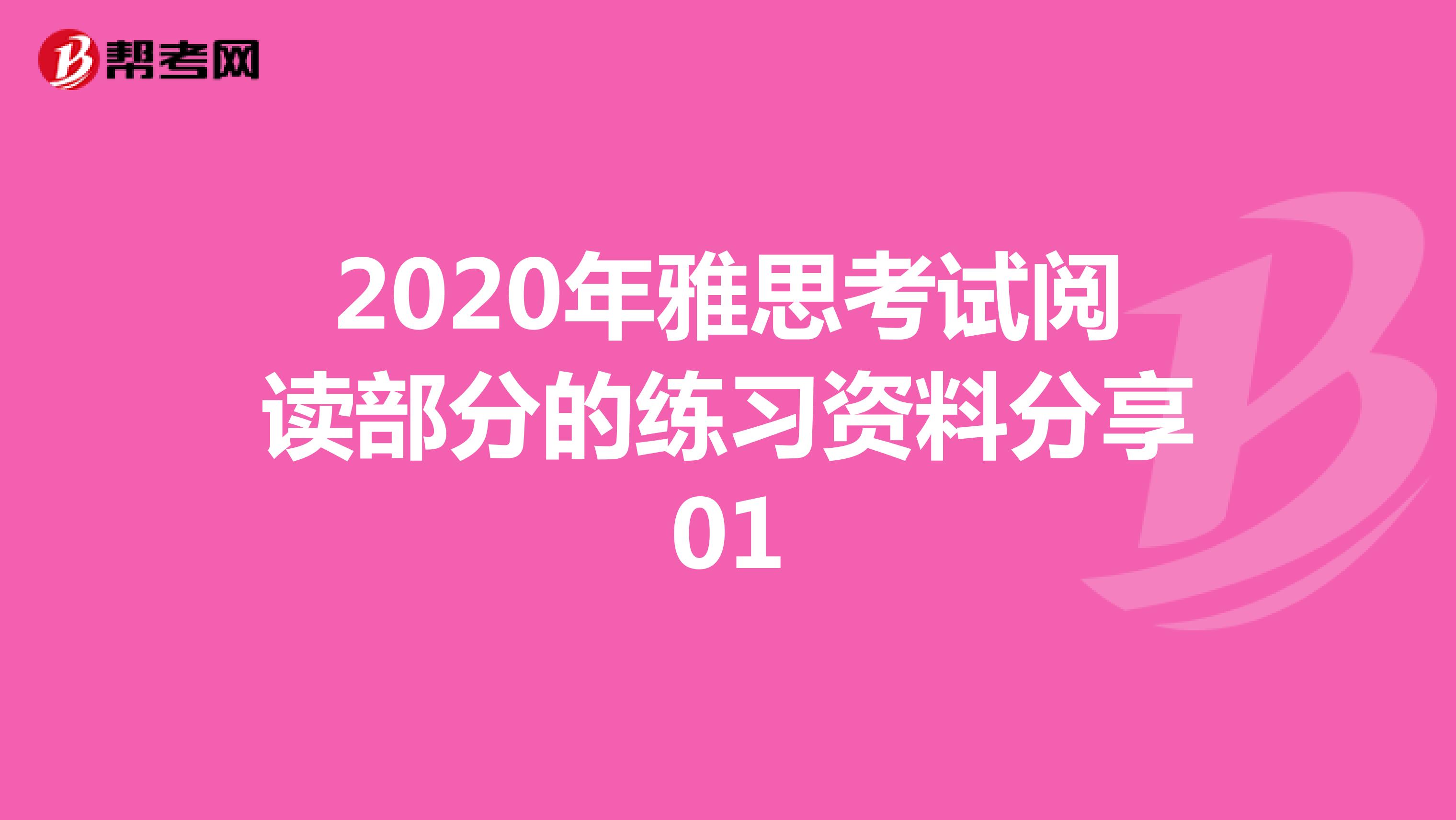
小伙伴们,雅思考试大家复习的怎么样了呢?下面是帮考网分享的雅思考试阅读部分的练习题,一起来看看吧!
雅思阅读练习及答案:
Selling Digital Music without Copy-protectionMakes Sense
A.
It was uncharacteristically low-key for theindustry’s greatest showman. But the essaypublished this week by Steve Jobs, the boss ofApple, on his firm’s website under the unassumingtitle “Thoughts on Music” has nonetheless provokeda vigorous debate about the future of digital music,which Apple dominates with its iPod music-player and iTunes music-store. At issue is “digitalrights management” (DRM)—the technology guarding downloaded music against theft. Sincethere is no common standard for DRM, it also has the side-effect that songs purchased for onetype of music-player may not work on another. Apple’s DRM system, called FairPlay, is the mostwidespread. So it came as a surprise when Mr. Jobs called for DRM for digital music to beabolished.
B.
This is a change of tack for Apple. It has come under fire from European regulators whoclaim that its refusal to license FairPlay to other firms has “locked in” customers. Since musicfrom the iTunes store cannot be played on non-iPod music-players (at least not without a lot offiddling), any iTunes buyer will be deterred from switching to a device made by a rival firm,such as Sony or Microsoft. When French lawmakers drafted a bill last year compelling Apple toopen up FairPlay to rivals, the company warned of “state-sponsored piracy”. Only DRM, itimplied, could keep the pirates at bay.
C.
This week Mr. Jobs gave another explanation for his former defence of DRM: the recordcompanies made him do it. They would make their music available to the iTunes store only ifApple agreed to protect it using DRM. They can still withdraw their catalogues if the DRMsystem is compromised. Apple cannot license FairPlay to others, says Mr Jobs, because it woulddepend on them to produce security fixes promptly. All DRM does is restrict consumerchoice and provide a barrier to entry, says Mr Jobs; without it there would be far more storesand players, and far more innovation. So, he suggests, why not do away with DRM and sellmusic unprotected? “This is clearly the best alternative for consumers,” he declares, “andApple would embrace it in a heartbeat.”
D.
Why the sudden change of heart? Mr Jobs seems chiefly concerned with getting Europe’sregulators off his back. Rather than complaining to Apple about its use of DRM, he suggests, “those unhappy with the current situation should redirect their energies towards persuadingthe music companies to sell their music DRM-free.” Two and a half of the four big recordcompanies, he helpfully points out, are European-owned. Mr Jobs also hopes to paint himself asa consumer champion. Apple resents accusations that it has become the Microsoft of digitalmusic.
E.
Apple can afford to embrace open competition in music players and online stores.Consumers would gravitate to the best player and the best store, and at the moment that stillmeans Apple’s. Mr Jobs is evidently unfazed by rivals to the iPod. Since only 3% of the music ina typical iTunes library is protected, most of it can already be used on other players today, henotes. (And even the protected tracks can be burned onto a CD and then re-ripped.) SoApple’s dominance evidently depends far more on branding and ease of use than DRM-related“lock in”.
F.
The music giants are trying DRM-free downloads. Lots of smaller labels already sell musicthat way. Having seen which way the wind is blowing, Mr Jobs now wants to be seen not asDRM’s defender, but as a consumer champion who helped in its downfall. Wouldn’t it lead to asurge in piracy? No, because most music is still sold unprotected on CDs, people wishing tosteal music already can do so. Indeed, scrapping DRM would probably increase online-musicsales by reducing confusion and incompatibility. With the leading online store, Apple wouldbenefit most. Mr Jobs’s argument, in short, is transparently self-serving. It also happens to beright.
好了,以上就是今天分享的全部内容了,各位小伙伴根据自己的情况进行查阅,希望本文对各位有所帮助,预祝各位取得满意的成绩,如需了解更多相关内容,请关注帮考网!
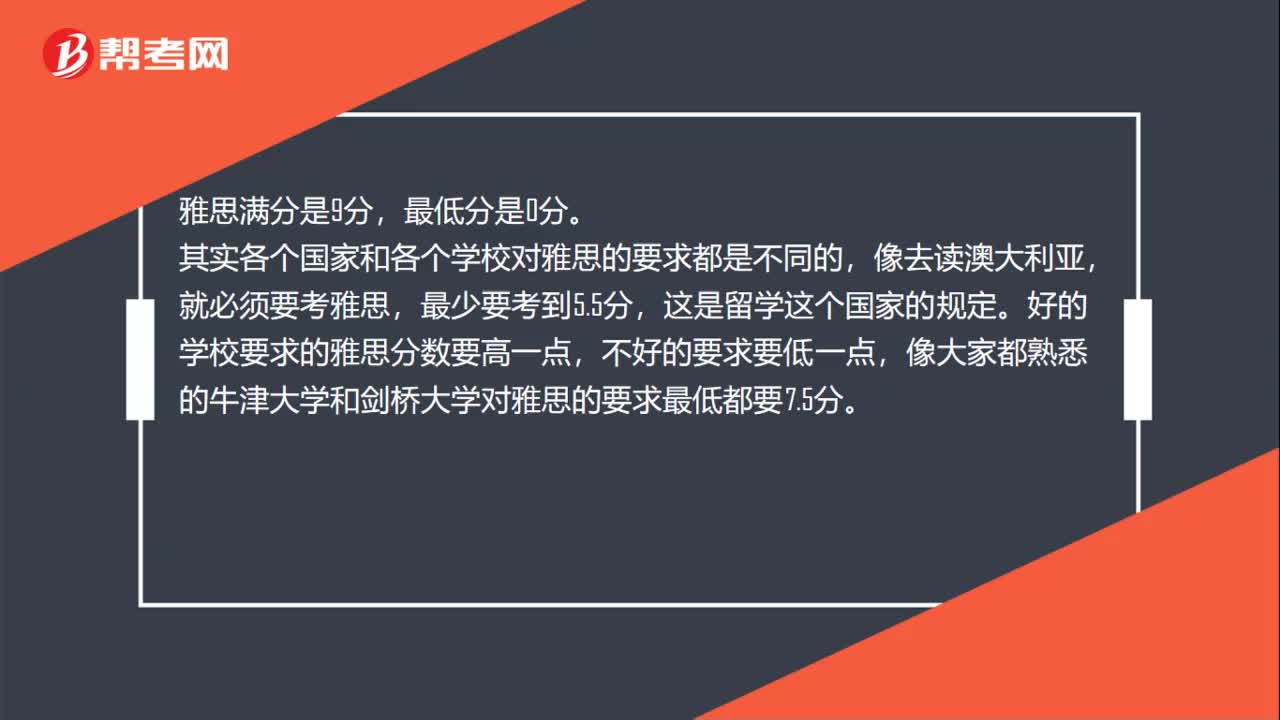 36
36雅思考试总分是多少?:雅思考试总分是多少?雅思满分是9分,最低分是0分。其实各个国家和各个学校对雅思的要求都是不同的,像去读澳大利亚,就必须要考雅思,最少要考到5.5分,这是留学这个国家的规定。好的学校要求的雅思分数要高一点,不好的要求要低一点,像大家都熟悉的牛津大学和剑桥大学对雅思的要求最低都要7.5分。
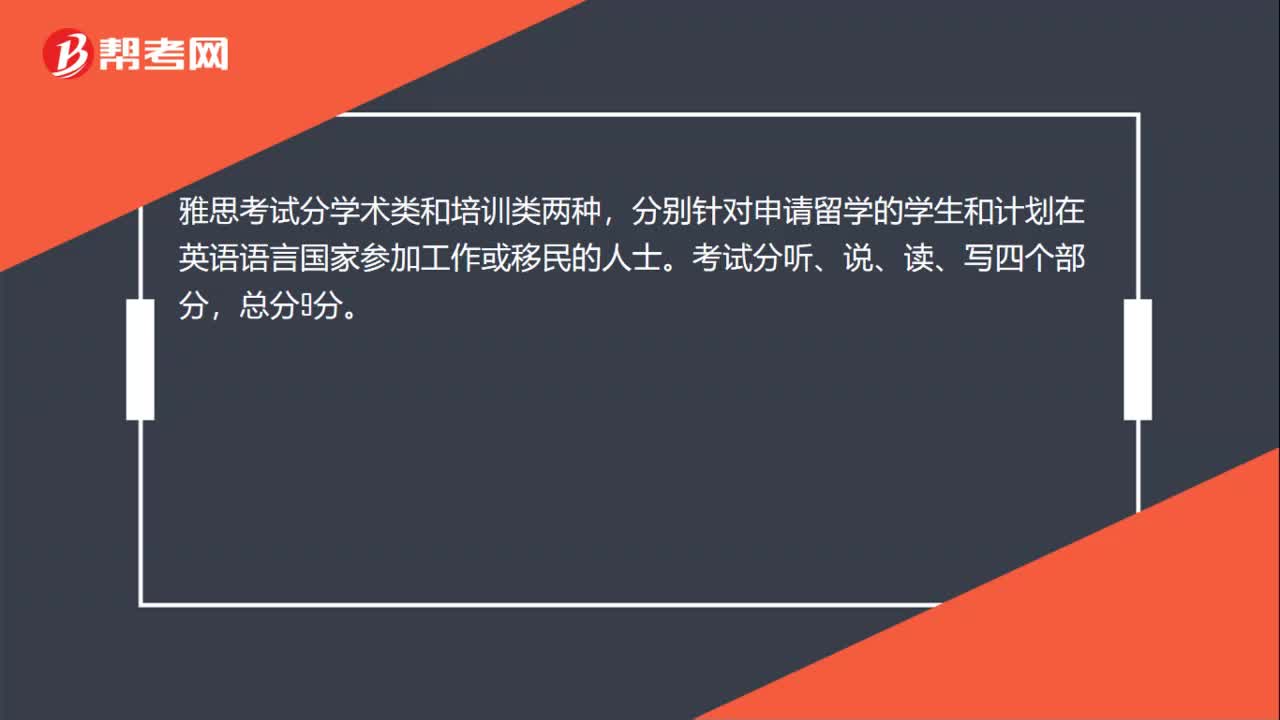 21
21雅思考试有几种类型?:雅思考试有几种类型?雅思考试分学术类和培训类两种,分别针对申请留学的学生和计划在英语语言国家参加工作或移民的人士。考试分听、说、读、写四个部分,总分9分。
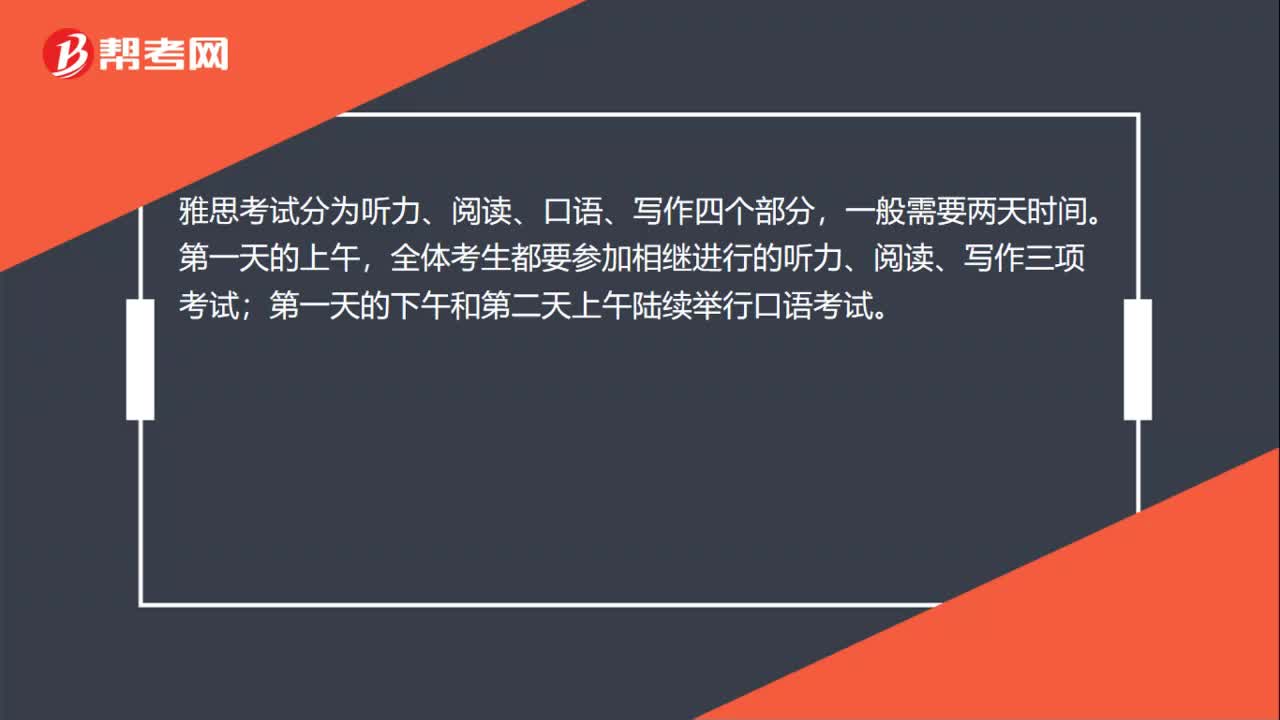 26
26雅思考试内容有哪些?:雅思考试内容有哪些?雅思考试分为听力、阅读、口语、写作四个部分,一般需要两天时间。第一天的上午,全体考生都要参加相继进行的听力、阅读、写作三项考试;第一天的下午和第二天上午陆续举行口语考试。
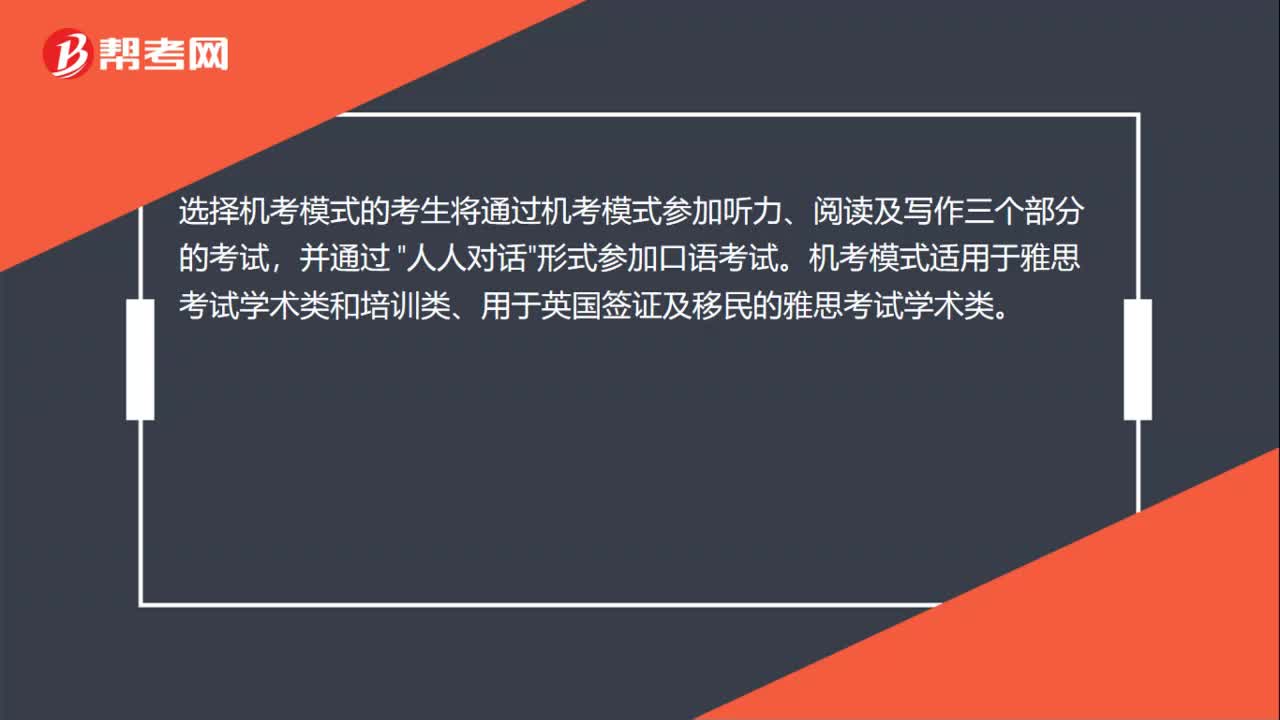 01:24
01:242020-06-01
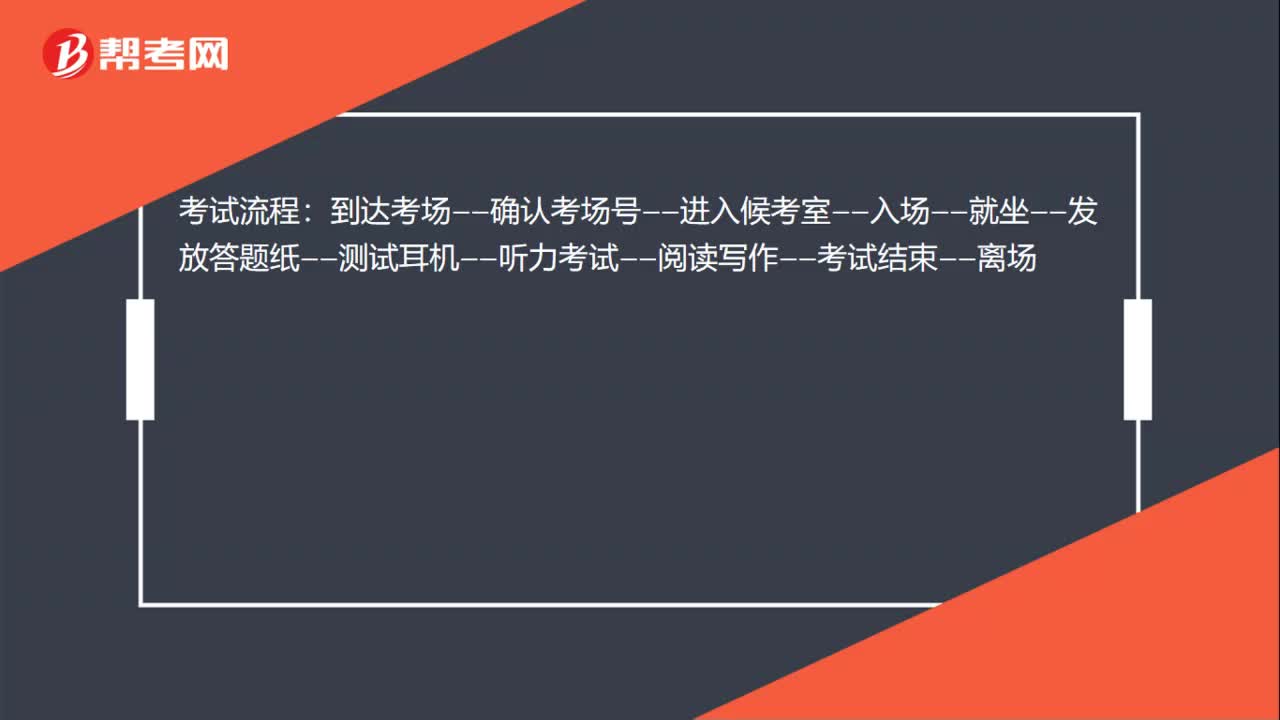 01:16
01:162020-06-01
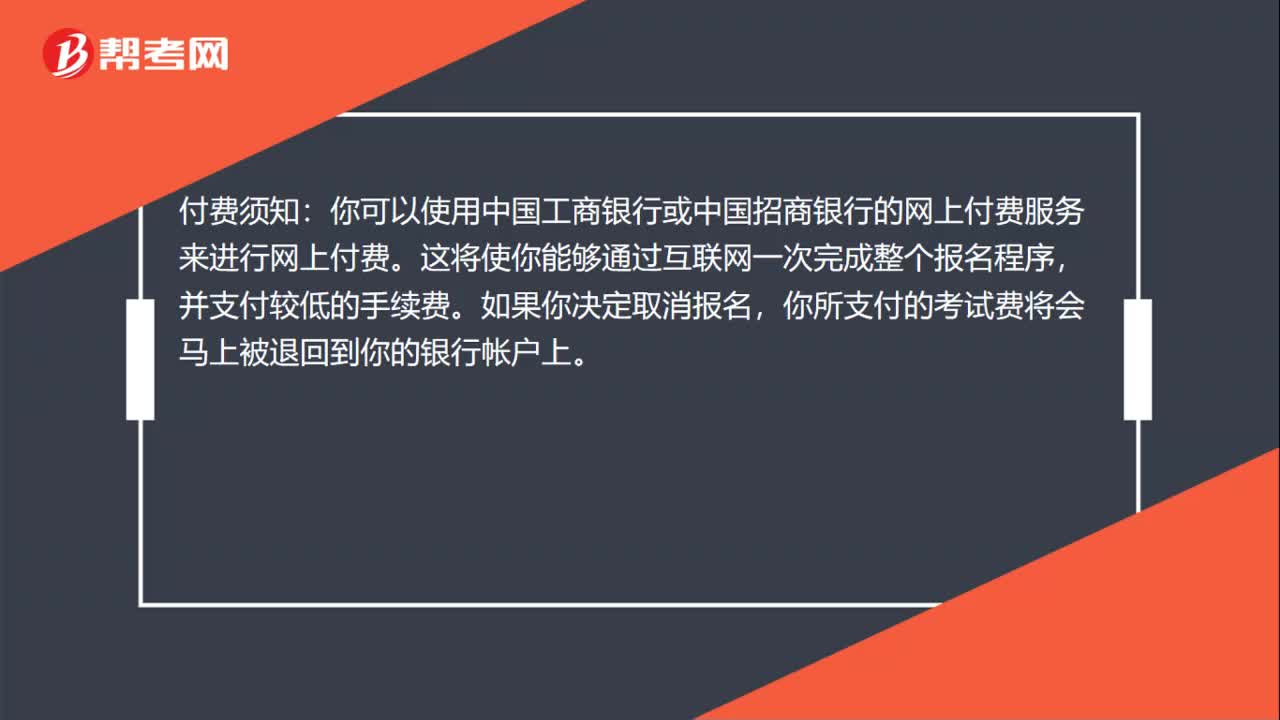 02:06
02:062020-06-01
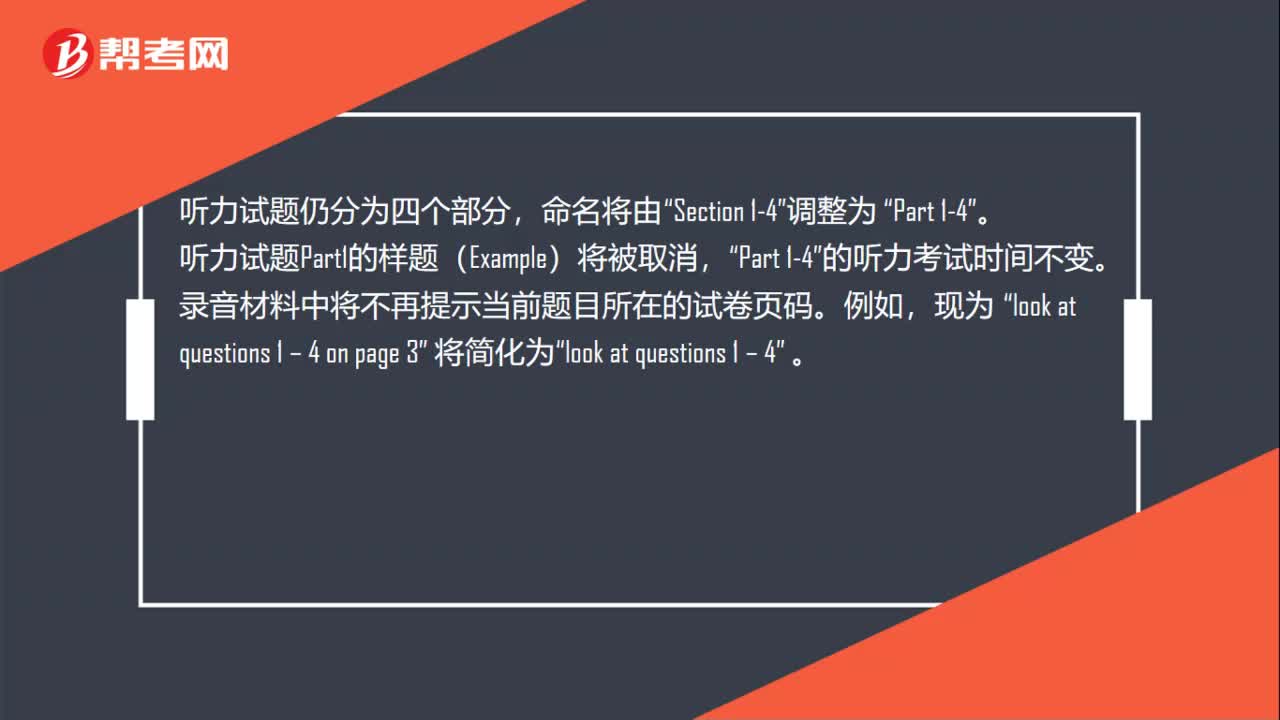 01:06
01:062020-06-01

微信扫码关注公众号
获取更多考试热门资料